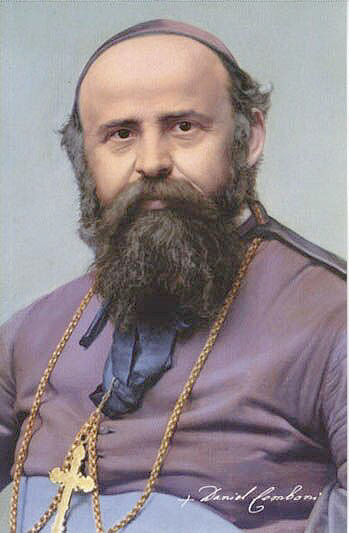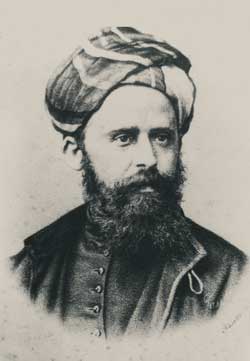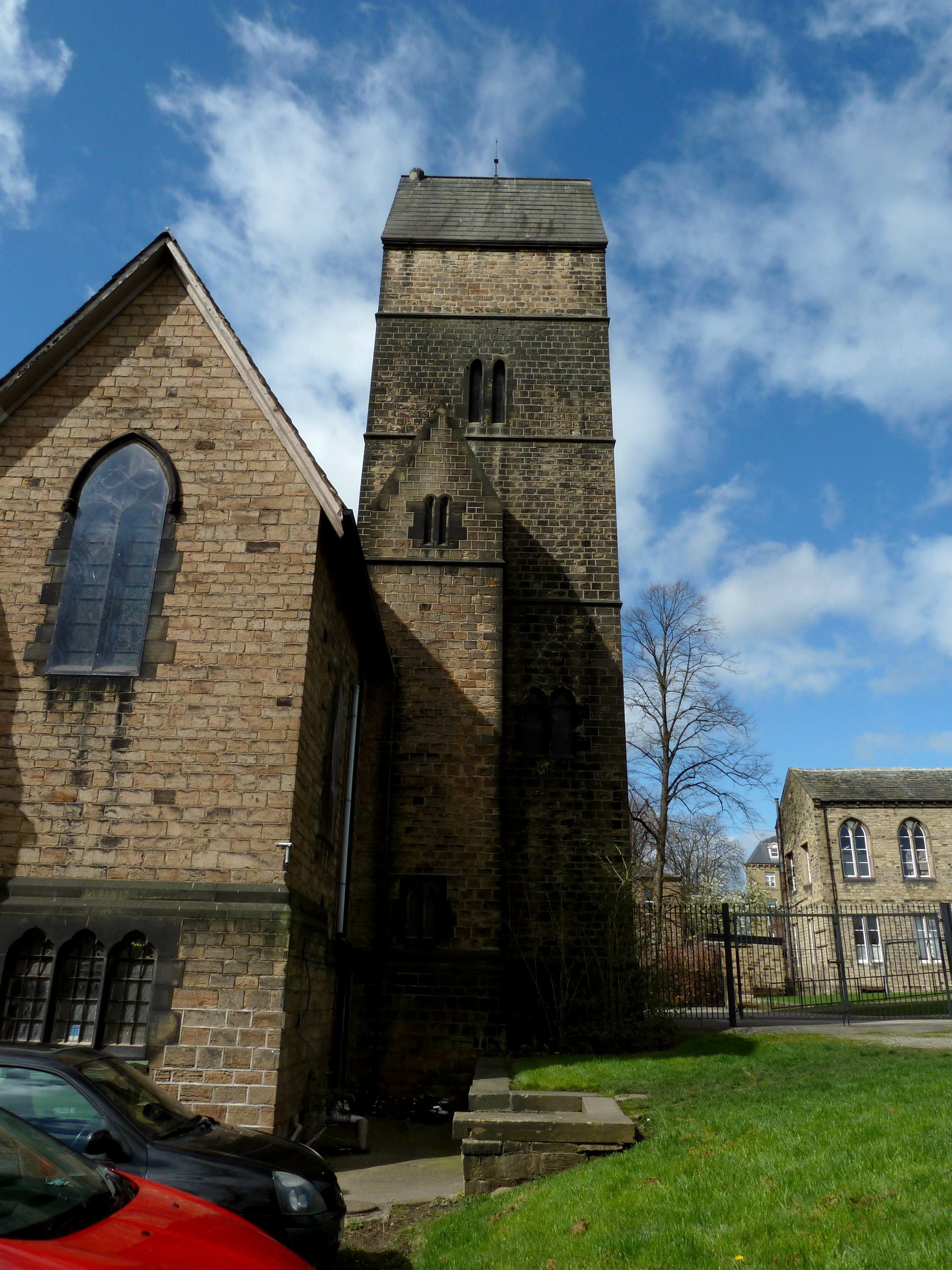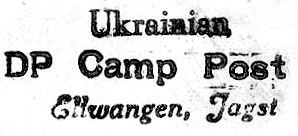|
Comboni Missionaries Of The Heart Of Jesus
Bold text The Comboni Missionaries of the Heart of Jesus ( la, Missionarii Comboniani Cordis Iesu), abbreviated MCCJ, also known as the Comboni Missionaries of the Sacred Heart, or the Verona Fathers, and originally called the Sons of the Sacred Heart of Jesus (''Congregatio Filiorum S. Cordis Iesu''), is a Catholic clerical male religious congregation of pontifical right. History The congregation was founded on 1 June 1867 by Daniele Comboni, who was born into a humble family of laborers. Comboni entered the institute opened in Verona by Nicola Mazza for the education of the poor. Mazza's institute was also involved in the work of evangelization of the territories of Central Africa. In 1854, Comboni was ordained a priest, and on 14 February 1858, he settled in the Vicariate Apostolic of Central Africa along with five missionary companions. The mission went poorly; the climate was harsh and the missionaries became ill. Some died within a few months, and in 1859 Comboni hims ... [...More Info...] [...Related Items...] OR: [Wikipedia] [Google] [Baidu] |
Daniele Comboni
Daniele Comboni (15 March 1831 – 10 October 1881) was an Italian Roman Catholic bishop who served in the missions in Africa and was the founder of both the Comboni Missionaries of the Heart of Jesus and the Comboni Missionary Sisters. Comboni studied under Nicola Mazza in Verona where he became a multi-linguist and in 1849 vowed to join the missions in the African continent although this did not occur until 1857 when he travelled to Sudan. He continued to travel back and forth from his assignment to his native land in order to found his congregations and attend to other matters, and returned in 1870 for the First Vatican Council in Rome until its premature closing due to conflict. Comboni attempted to draw attention across Europe to the plight of the people living in poor-stricken areas in the African continent and from 1865 until mid-1865 travelled across Europe to places such as London and Paris to collect funds for a project he started to tend to the poor and ill. His miss ... [...More Info...] [...Related Items...] OR: [Wikipedia] [Google] [Baidu] |
Khartoum
Khartoum or Khartum ( ; ar, الخرطوم, Al-Khurṭūm, din, Kaartuɔ̈m) is the capital of Sudan. With a population of 5,274,321, its metropolitan area is the largest in Sudan. It is located at the confluence of the White Nile, flowing north from Lake Victoria, and the Blue Nile, flowing west from Lake Tana in Ethiopia. The place where the two Niles meet is known as ''al-Mogran'' or ''al-Muqran'' (; English: "The Confluence"). From there, the Nile continues north towards Egypt and the Mediterranean Sea. Divided by these two parts of the Nile, Khartoum is a tripartite metropolis with an estimated population of over five million people, consisting of Khartoum proper, and linked by bridges to Khartoum North ( ) and Omdurman ( ) to the west. Khartoum was founded in 1821 as part of Egypt, north of the ancient city of Soba. While the United Kingdom exerted power over Egypt, it left administration of the Sudan to it until Mahdist forces took over Khartoum. The British atte ... [...More Info...] [...Related Items...] OR: [Wikipedia] [Google] [Baidu] |
Mirfield
Mirfield () is a town and civil parish in Kirklees, West Yorkshire, England. Historically part of the West Riding of Yorkshire, it is on the A644 road between Brighouse and Dewsbury. At the 2011 census it had a population of 19,563. Mirfield forms part of the Heavy Woollen District. Governance From 1894 to 1974, Mirfield was an urban district in the West Riding of Yorkshire until it was merged into the Metropolitan Borough of Kirklees. In 1988 a parish council was formed, one of five in Kirklees, the others being:- Denby Dale, Meltham, Kirkburton and Holme Valley. As a parish council an additional tax precept to the Kirklees Metropolitan Borough Council tax is levied on the town's residents. It is made up of 16 councillors who serve for a fixed four-year term, and represent wards within the parish. The members elect a town mayor, who serves for a fixed one-year term. Local elections In addition to the town council Mirfield is represented by three councillors on Kirklees Metro ... [...More Info...] [...Related Items...] OR: [Wikipedia] [Google] [Baidu] |
Minor Seminary
A minor seminary or high school seminary is a secondary day or boarding school created for the specific purpose of enrolling teenage boys who have expressed interest in becoming Catholic priests. They are generally Catholic institutions, and designed to prepare boys both academically and spiritually for vocations to the priesthood and religious life. They emerged in cultures and societies where literacy was not universal, and the minor seminary was seen as a means to prepare younger boys in literacy for later entry into the major seminary. The minor seminary is no longer very familiar in the developed world. The 1917 Code of Canon Law described the purpose of minor seminaries as: "to take care especially to protect from the contagion of the world, to train in piety, to imbue with the rudiments of literary studies, and to foster in them the seed of a divine vocation". Suitable boys were encouraged to graduate to a major seminary, where they would continue their tertiary studie ... [...More Info...] [...Related Items...] OR: [Wikipedia] [Google] [Baidu] |
Comboni Missionaries Map
{{dab ...
The term ''Comboni Missionaries'' can refer to either of two religious orders founded by Saint Daniele Comboni: * Comboni Missionaries of the Heart of Jesus * Comboni Missionary Sisters The Comboni Missionary Sisters (S.M.C.; it, Suore Missionarie Comboniane) are a Catholic religious institute originally founded under the name ''Piae Madres Nigritiae'', translated as the "Pious Mothers of the Nigritia" or "The Devout Mothers of ... [...More Info...] [...Related Items...] OR: [Wikipedia] [Google] [Baidu] |
Ellwangen
Ellwangen an der Jagst, officially Ellwangen (Jagst), in common use simply Ellwangen () is a town in the district of Ostalbkreis in the east of Baden-Württemberg in Germany. It is situated about north of Aalen. Ellwangen has 25,000 inhabitants. Geography Ellwangen is situated in the valley of the river Jagst, between the foothills of the Swabian Alb and Virngrund (ancient Virgundia) forest, the latter being part of the Swabian-Franconian Forest. The Jagst runs through Ellwangen from south to north. History The town developed in the 7th century as an Alemannic settlement in the Virgunna forest next to the Franconian-Swabian border. In 764 the Frankish noble Hariolf, Bishop of Langres, founded a Benedictine monastery, Ellwangen Abbey, on a hill next to the settlement. The monastery was mentioned in a document of Louis the Pious as ''Elehenuuwang'' in 814. It became a ''Reichsabtei'' in 817. From 870 to 873 the Byzantine Greek "Apostle of the Slavs" Saint Methodius was imprison ... [...More Info...] [...Related Items...] OR: [Wikipedia] [Google] [Baidu] |
Charism
A spiritual gift or charism (plural: charisms or charismata; in Greek singular: χάρισμα ''charisma'', plural: χαρίσματα ''charismata'') is an extraordinary power given by the Holy Spirit."Spiritual gifts". ''A Dictionary of the Bible'' by W. R. F. Browning. Oxford University Press Inc. ''Oxford Reference Online''. Oxford University Press. Accessed 22 June 2011. These are believed by followers to be supernatural graces which individual Christians need (and which were needed in the days of the Apostles) to fulfill the mission of the Church."Charismata". ''The Oxford Dictionary of the Christian Church''. Ed F. L. Cross and E. A. Livingstone. Oxford University Press Inc. ''Oxford Reference Online''. Oxford University Press. Accessed 22 June 2011.Wayne Grudem, ''Systematic Theology: An Introduction to Biblical Doctrine'' (Zondervan, 1994): 1016–17. In the narrowest sense, it is a theological term for the extraordinary graces given to individual Christians for the go ... [...More Info...] [...Related Items...] OR: [Wikipedia] [Google] [Baidu] |
Vatican II
The Second Ecumenical Council of the Vatican, commonly known as the , or , was the 21st ecumenical council of the Roman Catholic Church. The council met in St. Peter's Basilica in Rome for four periods (or sessions), each lasting between 8 and 12 weeks, in the autumn of each of the four years 1962 to 1965. Preparation for the council took three years, from the summer of 1959 to the autumn of 1962. The council was opened on 11 October 1962 by John XXIII (pope during the preparation and the first session), and was closed on 8 December 1965 by Paul VI (pope during the last three sessions, after the death of John XXIII on 3 June 1963). Pope John XXIII called the council because he felt the Church needed “updating” (in Italian: ''aggiornamento''). In order to connect with 20th-century people in an increasingly secularized world, some of the Church's practices needed to be improved, and its teaching needed to be presented in a way that would appear relevant and understandable to ... [...More Info...] [...Related Items...] OR: [Wikipedia] [Google] [Baidu] |
Religious (Catholicism)
A religious (using the word as a noun) is, in the terminology of many Western Christian denominations, such as the Catholic Church, Lutheran Churches, and Anglican Communion, what in common language one would call a "monk" or "nun", as opposed to an ordained "priest". A religious may also be a priest if he has undergone ordination, but in general he is not. More precisely, a religious is a member of a religious order or religious institute, someone who belongs to "a society in which members ..pronounce public vows ..and lead a life of brothers or sisters in common". Some classes of religious have also been referred to, though less commonly now than in the past, as regulars, because of living in accordance with a religious rule (''regula'' in Latin) such as the Rule of Saint Benedict. Catholicism Catholic canon law definition Religious are members of religious institutes, societies in which the members take public vows and live a fraternal life in common. Thus monks such as Bene ... [...More Info...] [...Related Items...] OR: [Wikipedia] [Google] [Baidu] |
Holy See
The Holy See ( lat, Sancta Sedes, ; it, Santa Sede ), also called the See of Rome, Petrine See or Apostolic See, is the jurisdiction of the Pope in his role as the bishop of Rome. It includes the apostolic episcopal see of the Diocese of Rome, which has ecclesiastical jurisdiction over the Catholic Church and the sovereign city-state known as the Vatican City. According to Catholic tradition it was founded in the first century by Saints Peter and Paul and, by virtue of Petrine and papal primacy, is the focal point of full communion for Catholic Christians around the world. As a sovereign entity, the Holy See is headquartered in, operates from, and exercises "exclusive dominion" over the independent Vatican City State enclave in Rome, of which the pope is sovereign. The Holy See is administered by the Roman Curia (Latin for "Roman Court"), which is the central government of the Catholic Church. The Roman Curia includes various dicasteries, comparable to ministries and ex ... [...More Info...] [...Related Items...] OR: [Wikipedia] [Google] [Baidu] |
Decree Of Praise
A decree is a legal proclamation, usually issued by a head of state (such as the president of a republic or a monarch), according to certain procedures (usually established in a constitution). It has the force of law. The particular term used for this concept may vary from country to country. The ''executive orders'' made by the President of the United States, for example, are decrees (although a decree is not exactly an order). Decree by jurisdiction Belgium In Belgium, a decree is a law of a community or regional parliament, e.g. the Flemish Parliament. France The word ''décret'', literally "decree", is an old legal usage in France and is used to refer to executive orders issued by the French President or Prime Minister. Any such order must not violate the French Constitution or Civil Code, and a party has the right to request an order be annulled in the French Council of State. Orders must be ratified by Parliament before they can be modified into legislative Acts. Special ... [...More Info...] [...Related Items...] OR: [Wikipedia] [Google] [Baidu] |
Sacred Congregation For The Propagation Of The Faith
Sacred describes something that is dedicated or set apart for the service or worship of a deity; is considered worthy of spiritual respect or devotion; or inspires awe or reverence among believers. The property is often ascribed to objects (a " sacred artifact" that is venerated and blessed), or places (" sacred ground"). French sociologist Émile Durkheim considered the dichotomy between the sacred and the profane to be the central characteristic of religion: "religion is a unified system of beliefs and practices relative to ''sacred things'', that is to say, things set apart and forbidden." Durkheim, Émile. 1915. ''The Elementary Forms of the Religious Life''. London: George Allen & Unwin. . In Durkheim's theory, the sacred represents the interests of the group, especially unity, which are embodied in sacred group symbols, or using team work to help get out of trouble. The profane, on the other hand, involve mundane individual concerns. Etymology The word ''sacred'' des ... [...More Info...] [...Related Items...] OR: [Wikipedia] [Google] [Baidu] |









.jpg)